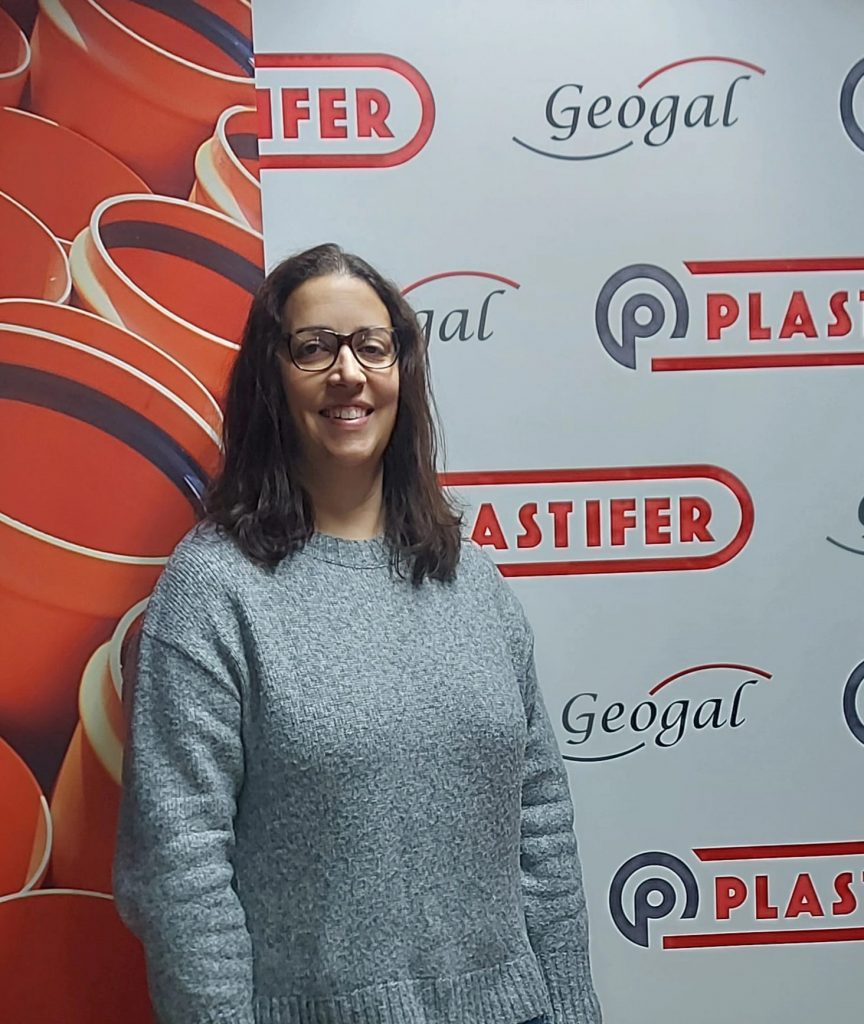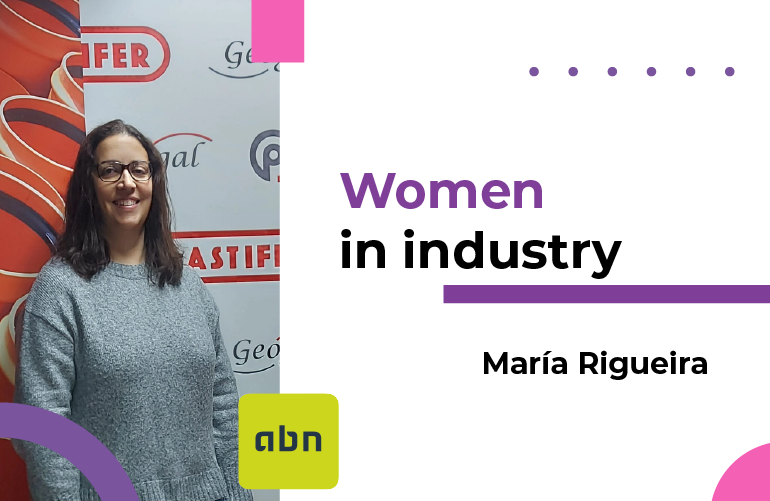In ABN we continue one more year with our cycle of interviews #womeninindustry with the aim of making female talent visible through talks with professionals in fields such as science, technology, engineering or mathematics.
The latest data from the Rankin CYD show that in Spanish universities women represent 36% of students in STEM degrees, while in general they represent 56% of those enrolled. The report also points out that women in ICT-related degrees are less than 14%, which is 5.5 points below the EU average. This means that we have a great challenge ahead of us as a society: to reverse these figures.
The first of the interviews in this series was given by María Rigueira, Technical and Quality Manager at PLASTIFER, a company with more than 40 years of experience in the transformation of plastics. In addition, she is also currently one of the members of the AENOR Technical Committee for Plastics Certification, responsible for establishing the parameters for the awarding of the Certificate.

“We must remove gender-based barriers. Equal opportunities and non-discrimination are essential. Valuing people for their worth, skills and work is the key”.
María Rigueira
Q: To initiate, could you tell us a little bit about your career path and how you came to be the quality manager at Plastifer?
A: I studied chemistry at the University of A Coruña. Subsequently, I did a triple master’s degree in Integrated Management of Occupational Risk Prevention, Quality and the Environment, and at the end of this master’s degree, I worked for a while in a Quality and Environmental consultancy firm, advising companies of all kinds on the implementation of different norms and standards.
Later I joined Plastifer, where I have grown throughout all these years, personally and professionally, hand in hand with all my colleagues.
In my opinion, the plastics sector is an exciting world, full of challenges and opportunities and I feel fortunate to be able to say that I love my job.
Q: You are also a member of AENOR’s Technical Committee for Plastics Certification. In your experience, are these types of organisations equal? Has progress been made recently?
A: I am one of the spokespersons representing the manufacturers since 2016, so my experience can be said to be quite “recent”.
Currently, out of seven members representing manufacturers, four are women and three are men, so we have parity, but this has not always been the case: for example, in 2010, seven of the five memberships were held by men.
In the rest of the organisations that are part of this TAG 001, representation is nowadays also fairly equal.
Q: The industrial sector is predominantly male. Given your background, how has the presence of women in the industry evolved?In your years of experience, what is your perception of the valuation of female talent in the sector?
A: There are more and more women in industry, at all levels. Not only in the administrative area, but also in technical, commercial and managerial areas.
Over the years, you see that many men who retire or change sectors have a woman as a replacement. Even today it is sometimes the case that in certain technical meetings there is a much higher percentage of women than men. So I can’t deny that, little by little, great progress has been made.
Q: Can you share any challenges you have faced as a woman in a technical sector like yours?
A: I always felt very supported in my company. The fact that Plastifer’s manager is a woman has helped me in my day-to-day work, and in this respect I am extremely grateful to her.
I cannot say the same about other forums, where I have suffered different episodes of micromachismo: from the typical question, “Whose secretary are you?”, to comments such as: “You are going to tell me how I have to do an installation”.
When you start in a male-dominated sector and you are a young woman you often have to deal with very unpleasant comments. Over the years you learn not to let them affect you, and they remain anecdotes.
I hope that one day, when a young woman enters the industrial sector, she will not have to prove more than a man in order to occupy the same position of responsibility.
Q: From your point of view, what are the pillars on which equality at the professional level is based?
A: I think that when we talk about equality we have to think about the economic, the social and the personal.
Equal opportunities and non-discrimination are the fundamental pillars for me.
At the professional level, there should be no barriers based on gender. Both men and women should be involved in all areas according to their competences and capacities.
I believe that this equality should not be achieved by favouring women over men, but by valuing all people without barriers, for their worth, preparation and work.
Q: Is there still room to explore for women in the industrial sector?
A: Personally, I believe that with the digitalisation and automation of the industrial sector, more and more women and young people will join this sector, which has historically been male-dominated due to the type of work or due to stereotypes in society. However, in order to achieve this equality, it is important for schools to carry out educational work so that professions are no longer associated with a specific gender.
There is still a long way to go, but more and more women are working in the industrial sector, and this is a sign that the situation is slowly changing.
